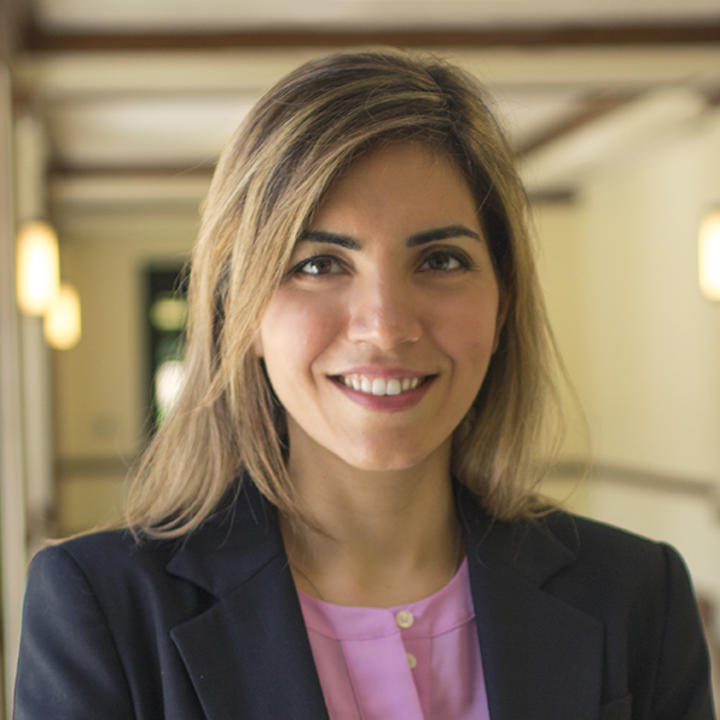
Accounting
About Our Accounting Faculty and Research
Our accounting faculty are trailblazing scholars who have made major contributions to accounting research and pedagogy. Their passion for educating future leaders — that means you — is apparent in their classrooms and frequently recognized by teaching awards.
"My research centers on financial reporting, regulation and corporate governance in financial institutions such as commercial and investment banks. The significance of regulation in the financial services industry is staggering. The response to heightened regulations by managers, regulators, auditors and investors differs because their incentives are often not perfectly aligned. I’m curious about what happens when those incentives diverge and what impact it might have on real decisions and financial reporting." - Hailey Ballew, Assistant Professor of Accounting
About Us
At the 2007 American Accounting Association’s Annual Meeting, a renowned archeologist, Denise Schmandt-Besserat, said that global business would have never flourished but for double-entry accounting and the needed credible recordkeeping that goes with it. Her research is argued to show that civilization began with double-entry accounting, and writing began with the needed recordkeeping to capture debts and promises. The idea is that without an ability to keep track of promises of future performance, inter-temporal exchanges could never happen, without which commerce would have been stifled.
While I am paraphrasing, accounting scholarship has played a key role in understanding the way the business world operates. My colleagues at the Jones School have played and continue to play an important role in developing our common understanding of capital markets, business contracting and agency relationships and how accounting helps shape them.
One of the initiatives we are particularly excited about is the Master of Accounting (MAcc) program, which features world-class accounting faculty and a curriculum designed for students with non-business undergraduate academic background. You can learn more about the MAcc program online.
I am very proud to say that I am part of a group of trailblazing senior scholars who have made major contributions to accounting research and pedagogy, balanced by vibrant, next-generation-scholars who will reach even greater heights. My colleagues include:
- A member of the Accounting Hall of Fame
- A current editor of two of the top-3 accounting research journals
- A recipient of academe’s research impact award for management accounting practice
My colleagues’ teaching accomplishments are extraordinary. Their passion for educating the future leaders of a premier business school and a world-class research university is frequently recognized by teaching awards at the Jones School’s annual investiture. Who would have guessed that debits and credits can be that inspiring!
As you become part of the Jones School and Rice University, I urge you to visit with my colleagues and learn more about their research agenda and teaching interests. It would be worth your time.
Sincerely,
K. Ramesh
Herbert S. Autrey Professor of Accounting
Sample Accounting Electives
These courses help students understand the way the business world operates.
-
This course builds on earlier courses on cost management and corporate strategy and focuses on the management control systems that can be used for the effective implementation of strategy. Included topics are the balanced scorecard, stretch budgets, performance evaluation and incentives, organizational and operational controls, and the development of metrics to motivate and evaluate performance.
-
Study of how investors, financial analysts, creditors, and managers use financial statement information in evaluating firm performance and in valuing firms. Emphasizes industry and firm-level analysis of accounting information using financial accounting concepts and finance theory.
-
This course offers an advanced introduction into the Economics of Information with an emphasis on core business applications.
-
This course is designed to develop basic skills in financial statement analysis with special emphasis on understanding, organizing and summarizing financial data for decision making purposes related to valuation. The course focuses on financial and accounting analysis which consists of documenting and understanding a firm's profitability relative to past performance and comparable firms. Ratio analysis, accounting quality, and earnings management are the focal points of this portion of the course.
-
This course covers two major topics: 1) forecasting financial statements based on a complete historical analysis of the firm; 2) deriving firm value under a variety of approaches including discounted cash flows (DCF) and residual operating income valuation (ROPI).
-
As healthcare costs continue to rise at an alarming rate in U.S. over the past decade (about 20% of GDP by some accounts), issues relating cost measurement and management in the delivery of healthcare have also taken center stage. Experts in business and management have argued that extant cost systems do a poor job of measuring how much it costs to treat patients. Absent accurate measurement of these costs, many decisions could go wrong. Cost management and efficiency initiatives would be misguided, and medical reimbursements would lack proper cost bases. These concerns have triggered advances in cost measurement and management techniques that are useful not just in the healthcare setting, but also in other service organizations. The purpose of this elective is to help students develop a critical understanding of the nature of costs in healthcare delivery, their measurement in a variety of decision contexts, and how they can be managed and improved. Students will be exposed to tools such as the break-even analysis, role of cost allocations, activity-based costing, time-driven activity based costing, and cost control.
-
This course is focused on identifying and developing logical tools for gaining precise insights into what are otherwise complex and seemingly intractable real life situations. The format is one of in-class group case solutions from the perspective of business consultants, followed by class discussion of the specific tools that works for broad classes of alike problems.
-
Using case studies, the course will examine topics such as the roles and responsibilities of corporate boards, how to adapt corporate governance practices from private to public, the role of culture and financial incentives on ethics and corporate performance, the pros and cons of dual class structures, and the effects of shareholder activism.
-
This course includes an in-depth analysis of certain complex financial accounting standards promulgated by the FASB and applied by practitioners in public accounting and industry. Topics include Bonds & Debt, Contingent Liabilities, Leases, Shareholders' Equity, Share-Based Compensation, Pensions and other Post-Retirement Employee Benefits, Earnings per Share, Income Tax Accounting, and Derivatives/Hedging.
-
Examines the concepts of the integrated audit of internal control over financial reporting in accordance with PCAOB Audit Standard 5. Also covers fundamental procedures used in financial statement audits, specifically in the client acceptance and continuance, planning and risk assessment, and audit comfort cycle phases of the engagement.
-
This course provides students with an in-depth understanding of professional standards, the audit process, advanced auditing techniques, and the auditor’s role. This course will use case studies to explore audit topics not extensively covered in a typical intro-auditing course, including planning/risk assessment, design and execution of procedures, testing techniques, and software tools.
-
Introduction to federal income tax principles. Emphasis on general skills in identifying and resolving tax issues, understanding the administrative and public policy and reasoning underlying tax law choices and integrating the tax laws into business and personal decisions and planning. Coverage of taxation of C-corporations, S-corporations, and partnerships.
-
Building on MGMT 603 Business Tax Strategy: Principles, this course considers tax strategy in several industries, including energy, real estate, health care, and entrepreneurship. Each setting provides unique tax challenges and opportunities. Students focus on an applied tax strategy project in their chosen industry of interest. MGMT 603 may be taken concurrently.


Faculty research applied in the classroom.



























